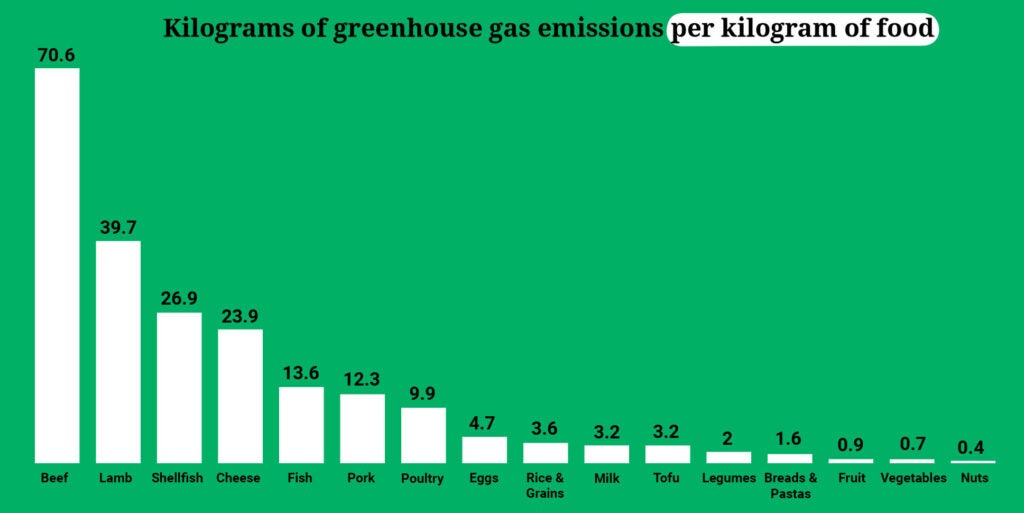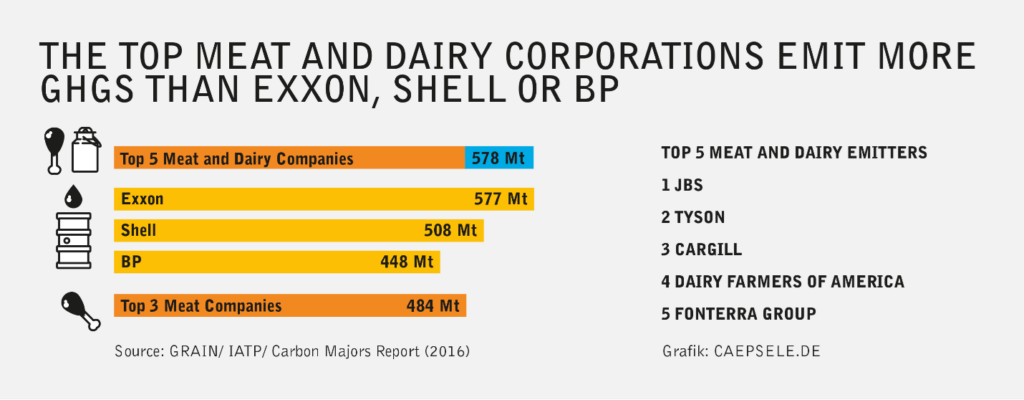D.C. Court Greenlights Climate Greenwashing Case
The Superior Court for the District of Columbia denied Tyson Food, Inc.’s efforts to avoid liability and allowed the case to move forward.
With Tyson Food, Inc. attempting to sell its meat to environmentally-conscious customers by making misleading climate claims, Environmental Working Group, represented by Earthjustice, FarmSTAND, Animal Legal Defense Fund, and Edelson PC, sued. This week, in a decisive ruling, the Superior Court for the District of Columbia denied Tyson’s efforts to avoid liability and allowed the case to move forward.
In the midst of the growing climate crisis, consumers are increasingly willing to pay more for climate-friendly foods. The growing awareness of food’s climate impact threatens industrial meat companies like Tyson, whose products are among the most climate-polluting choices for consumers.
In fact, the top five meat and dairy companies combined (including Tyson) produce more greenhouse gas emissions than ExxonMobil, BP, or Shell:
Tyson’s emissions alone are on par with entire industrialized nations, including Austria, Belgium, Greece, and New Zealand.
Despite the significant climate emissions Tyson produces at every stage of its production process, Tyson tries to capitalize on consumers’ shift to more sustainable food choices by marketing itself and its products as climate-friendly. However, our complaint alleges that Tyson is making these claims without making any significant changes to its operations. For years, it has repeatedly represented to consumers that it will be net-zero by 2050 and that it has a climate-smart beef program, all while not even knowing the full scope of its own emissions and investing only small amounts to reduce emissions.
We, along with partner organizations, decided to call Tyson’s bluff, challenging their sustainability claims as unlawful greenwashing under D.C.’s consumer protection law. Despite Tyson’s efforts to avoid liability and get this case dismissed, the D.C. Superior Court found that the facts we alleged in our complaint were sufficient for us to get into discovery and proceed on the merits.
As the court noted, the complaint set out “a fundamental mismatch between the allegedly minimal steps Tyson is taking and the actions that would be necessary to achieve its net-zero goal.” The Court noted that the “vast discrepancy” we alleged “between Tyson’s actions and its stated intentions parallels the facts” in an earlier case in which the court similarly denied Coca-Cola an out in a case challenging the company’s environmental stewardship claims.
The court further noted that “even if Tyson were reducing its beef emissions by 10% or 30% as advertised” in its climate smart beef program, “that would only constitute a drop in the bucket of environmental harm that Tyson is alleged to cause.”
Tyson also argued that it should not be sued in the District of Columbia, but the court rejected that claim. The court noted that the complaint asserts that “Tyson sells and distributes its products in brick-and-mortar stores throughout the city and maintains websites through which it markets its products directly to District consumers, demonstrating that Tyson has ‘purposefully avail[ed] itself of the privilege of conducting activities in the District.”
We look forward to proceeding with this case. Consumers have a right to make purchases that reflect their values, and they deserve correct and not-misleading information on which to base those choices.
Earthjustice’s Sustainable Food and Farming program aims to make our nation’s food system safer and more climate friendly.

